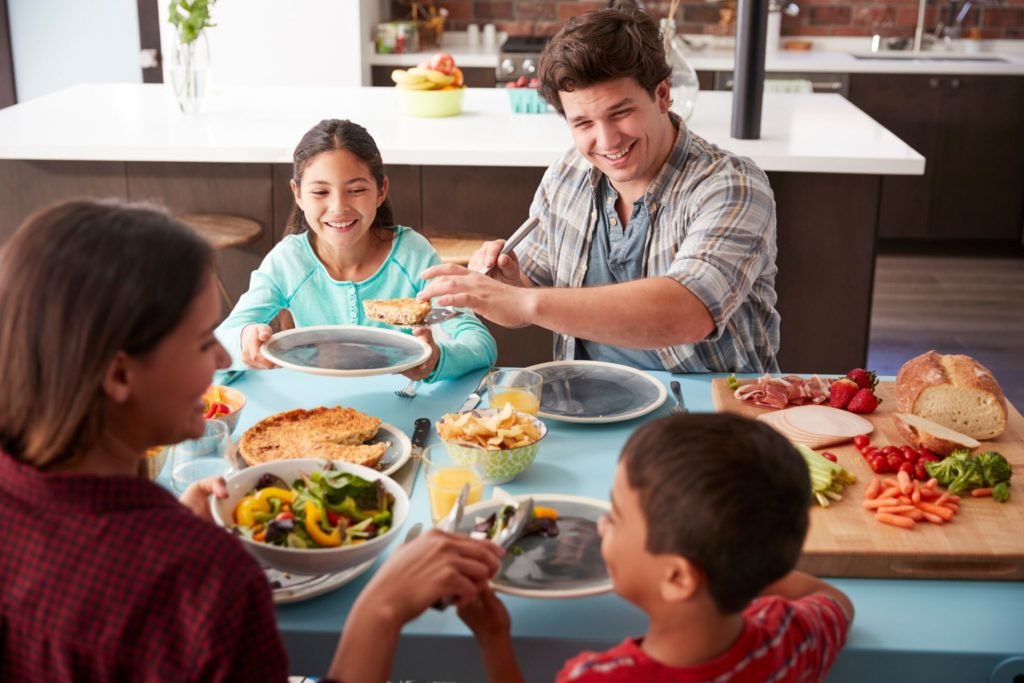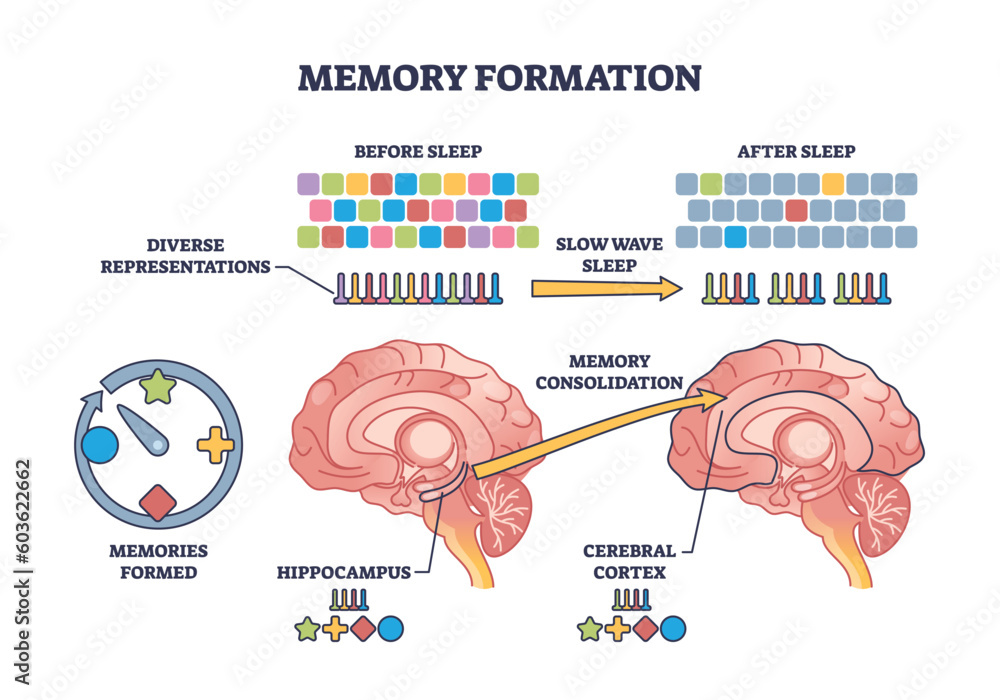Shared meals and happiness are deeply interconnected, as research increasingly highlights the positive impact of dining with others on our well-being. Studies, including findings from the annual World Happiness Report, show that individuals who engage in meal sharing tend to experience greater life satisfaction and elevated positive emotions. This suggests that the importance of shared meals transcends mere dining; it fosters social connections and happiness that can significantly enhance our quality of life. Unfortunately, recent statistics reveal a concerning trend: Americans are increasingly eating alone, which could undermine the meal sharing benefits vital for nurturing these relationships. As we explore the value of shared meals, it becomes clear that prioritizing communal dining can play a crucial role in boosting our social interactions and overall happiness.
The act of enjoying meals together — or communal dining — has emerged as a cornerstone for fostering joy and improving our overall well-being. When we think about meal sharing, it’s essential to consider how these interactions contribute to our social fabric, leading to more profound connections and enhancing our happiness. The significance of breaking bread with others is evident; not only does it highlight the benefits of sharing food, but it also emphasizes the ripple effects on our mental health and social well-being. As we begin to understand the broader implications of these gatherings, it becomes increasingly apparent that the practice is more than just a cultural norm; it is a vital component of our social interactions that can enrich our lives and foster community bonds.
The Connection Between Shared Meals and Happiness
Recent studies highlight a profound connection between shared meals and overall happiness, suggesting that communal dining experiences can significantly enhance life satisfaction. Researchers assert that sharing meals fosters social connections that contribute positively to one’s emotional and psychological well-being. By engaging with others over shared culinary experiences, individuals cultivate an environment where joy and laughter thrive, thus building stronger relational bonds. This is particularly important in a world where many feel increasingly isolated, with statistics indicating that many people dine alone more now than ever before.
Moreover, the benefits of shared meals extend beyond immediate happiness; they also play a critical role in improving long-term well-being. Social interactions during meals can alleviate feelings of loneliness and depression, emphasizing the importance of communal dining in fostering social connections. As people gather around the dinner table, they not only share food but also stories, experiences, and laughter, creating a tapestry of memories that enrich their lives. This dynamic illustrates that shared meals are not just about nutritional intake but are crucial for emotional nourishment as well.
Exploring Meal Sharing Benefits for Social Connections
Meal sharing can act as a vital catalyst for strengthening social connections, significantly impacting overall happiness. When individuals dine together, they engage in meaningful conversations and develop a sense of belonging. This shared experience enhances trust and mutual understanding among participants, laying the groundwork for stronger relationships. The act of eating together promotes collaboration and empathy, essential components of any healthy social interaction.
Additionally, communal meals can break down barriers, allowing individuals from diverse backgrounds to come together and share their unique perspectives. This diversity in meal sharing enriches social interactions, fostering an appreciation for different cultures and traditions. By participating in communal dining, individuals are not only celebrating the food but also embracing their shared humanity, creating a more vibrant and connected community that enhances collective well-being.
Well-Being and Social Interactions: The Role of Shared Dining
The relationship between well-being and social interactions is evident in the context of shared dining experiences. Research indicates that the frequency of shared meals can serve as a strong indicator of an individual’s overall happiness. When people engage in meals with others, they create opportunities for deepening friendships and social networks, leading to increased feelings of support and belonging. This connection is indispensable for maintaining emotional health and resilience amidst life’s challenges.
Moreover, the act of sharing meals can become a routine that reinforces social bonds, establishing a sense of community and continuity in relationships. Engaging in regular meal sharing rituals—whether with family, friends, or colleagues—can reinforce positive social habits that contribute to enhanced well-being. As groups gather around the table, they not only share food but also nurture relationships that significantly elevate their happiness and emotional health.
The Importance of Shared Meals in Modern Society
In contemporary society, where technology often replaces face-to-face interactions, the importance of shared meals cannot be overstated. These communal gatherings serve as a respite from the increasingly isolated modern lifestyle, allowing individuals to reconnect with one another. The significance of regular shared meals emerges as a counterbalance to the rising trend of solitary dining, highlighting a crucial societal need to foster connections.
Additionally, policymakers and community leaders are beginning to recognize the value of encouraging meal sharing as a means to enhance social cohesion and public health. Initiatives promoting communal dining can be instrumental in combating loneliness and creating healthier, more engaged communities. By restructuring meal times to emphasize shared experiences, society can work toward improving mental health outcomes and overall happiness across diverse populations.
Strategies to Encourage Shared Meals Among Families
Encouraging shared meals among families is essential in creating a supportive home environment that fosters happiness. Setting aside dedicated family meal times can create a consistent routine that allows family members to connect on a deeper level. Simple strategies, such as cooking together, can enhance collaboration and communication, transforming meal preparation into a shared family activity that promotes unity and teamwork.
Furthermore, instilling the value of shared meals in children from a young age teaches them the benefits of social interactions. As children participate in family meals, they learn essential social skills, such as communication and empathy. Encouraging discussions during meals can help them express their thoughts and feelings, enhancing their emotional intelligence while reinforcing family bonds that contribute to their overall happiness.
Shared Meals as a Foundation for Community Building
Shared meals extend beyond families and play a critical role in community building. Community dinners, potluck gatherings, and food festivals offer opportunities for neighbors to connect, fostering a sense of belonging and mutual support. These events serve as platforms for individuals to forge new friendships, share resources, and celebrate diversity, creating a rich tapestry of community life that enhances social connectedness.
Moreover, community meal-sharing initiatives can be instrumental in bridging gaps between diverse groups, fostering understanding and collaboration. By providing spaces where people feel safe and welcomed, these communal dining experiences can alleviate tensions and encourage dialogue among different demographics. Ultimately, shared meals can transform the fabric of local communities, leading to stronger, more cohesive societies that prioritize well-being and happiness.
Leveraging Technology to Foster Shared Dining Experiences
In a fast-paced digital world, leveraging technology can enhance shared dining experiences and promote social interactions. Various apps and platforms enable users to organize communal dining events, connect with others seeking meal partners, or join cooking classes, facilitating meal sharing in a more accessible manner. Utilizing technology helps people overcome barriers that may have previously prevented them from pursuing in-person connections.
Additionally, virtual dining experiences have emerged as a creative solution for maintaining social connections, especially during challenging times such as the COVID-19 pandemic. Online platforms allow friends and family to share meals virtually, providing a sense of togetherness despite physical distance. These technological advancements demonstrate that shared meals are adaptable to contemporary lifestyles, ensuring that the joy of dining together can continue to thrive.
Cultural Perspectives on Shared Meals and Happiness
The cultural significance of shared meals varies across societies, yet they universally embody the elements of happiness and social bonding. In many cultures, communal dining is a cherished tradition that reflects hospitality and connection. Whether it is a festive family gathering or a community feast, these events are instrumental in reinforcing cultural values and identity while promoting well-being and happiness.
Exploring different cultural practices surrounding meal sharing can shed light on the universal need for connection. For instance, cultures that prioritize communal dining often place a strong emphasis on relationships, emphasizing the importance of belonging and social support. This collective value placed on meal sharing illustrates how embedded these practices are in contributing to the happiness and emotional health of individuals and communities alike.
Future Research Directions on Shared Meals and Well-Being
As research continues to uncover the links between shared meals and well-being, future studies may explore the deeper mechanisms at play in this relationship. Understanding whether shared meals enhance happiness independently or if happier individuals naturally gravitate toward communal dining could provide valuable insights. Investigating these dynamics will not only enrich the academic discourse on social connections but also inform public policy aimed at improving mental health through social interventions.
Moreover, ongoing research could address the broader implications of shared meals across diverse populations. By examining the impact of shared dining on various demographics, researchers can better understand how cultural, socioeconomic, and geographic factors shape the benefits of meal sharing. This knowledge could be pivotal in developing culturally sensitive initiatives that harness the power of shared meals as a means to enhance overall happiness and well-being in society.
Frequently Asked Questions
What is the importance of shared meals for happiness?
Shared meals play a crucial role in enhancing happiness as they foster social connections and strengthen relationships. Studies show that individuals who frequently dine with others report higher life satisfaction and emotional well-being. Engaging in meal sharing not only satisfies hunger but also nurtures social interactions that contribute to a sense of belonging and joy.
How does dining with others affect well-being and social interactions?
Dining with others positively affects well-being by promoting social interactions that lead to meaningful connections. When people share meals, they engage in conversations, laughter, and shared experiences, which are essential for emotional wellness. This shared dining experience can mitigate feelings of loneliness and enhance overall happiness, making it an important aspect of social life.
Are there measurable benefits of meal sharing on happiness?
Yes, there are measurable benefits of meal sharing on happiness. Research indicates that individuals who regularly share meals tend to report higher levels of life satisfaction comparable to those with stable income. This correlation highlights the importance of social connections formed through dining together, revealing that the quantity of shared meals can significantly enhance one’s overall happiness.
In what ways do meal sharing benefits contribute to social connections?
Meal sharing benefits contribute to social connections by providing a platform for individuals to interact face-to-face. It encourages collaboration, communication, and emotional bonding among participants. These interactions can strengthen existing relationships and help forge new friendships, fostering a community spirit that is vital for personal happiness and well-being.
Can dining alone impact well-being compared to shared meals?
Yes, dining alone can impact well-being negatively when compared to shared meals. Studies indicate that a significant number of individuals are now eating alone, which correlates with lower reported happiness levels. Sharing meals, in contrast, promotes social interaction and emotional fulfillment, essential elements for maintaining good mental health and enhancing overall life satisfaction.
What do researchers suggest about the relationship between shared meals and happiness?
Researchers suggest that there is a strong correlation between shared meals and happiness, indicating that sharing meals could be as reliable an indicator of well-being as income. While the exact causal relationship is still under investigation, the evidence points to the importance of social interactions during meal times for enhancing emotional well-being and life satisfaction.
How can encouraging shared meals be a policy intervention for happiness?
Encouraging shared meals can serve as a valuable policy intervention to enhance community well-being. By promoting initiatives that facilitate communal dining, such as community dinners, food programs, or social dining events, policymakers can help combat social isolation. Such efforts aim to increase shared meal experiences and foster social connections, thereby contributing to improved mental health and happiness among community members.
| Key Point | Details |
|---|---|
| Shared Meals and Well-Being | Individuals who share meals report higher life satisfaction and positive emotions, potentially linking shared meals to happiness. |
| Decline of Shared Meals | A 2023 survey indicated that 1 in 4 Americans ate alone the previous day, a 53% increase since 2003. |
| Impact Across Demographics | The decline in shared meals is consistent across age groups, particularly among younger individuals. |
| Unclear Causation | It is unclear whether sharing meals leads to happiness or if happier people tend to share more meals. |
| Easier Measurement | Shared meals offer a more straightforward measure of well-being compared to income and other metrics. |
| Potential Policy Focus | Encouraging shared meals could enhance well-being and may serve as a focal point for policy initiatives. |
Summary
Shared meals and happiness are significantly connected, as demonstrated by recent research which shows that individuals who frequently dine with others tend to experience greater life satisfaction. This correlation suggests that fostering opportunities for communal dining can not only enhance personal connections but also provide a valuable avenue for improving overall well-being. In light of the increasing trend of individuals eating alone, policy measures promoting shared meals may serve as vital interventions in enhancing communal bonds and, consequently, happiness.




